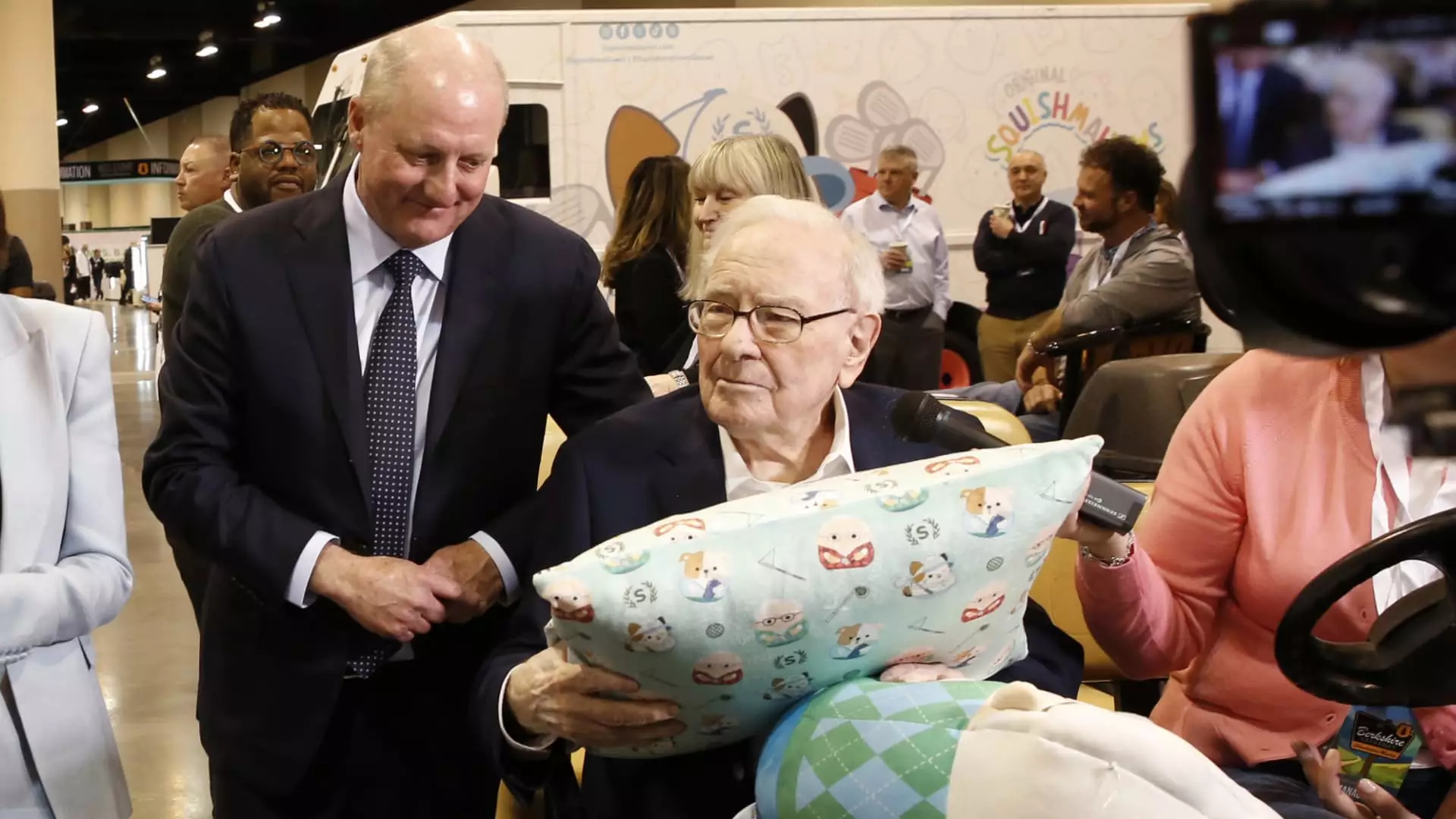Warren Buffett’s recent announcement regarding his impending resignation as CEO of Berkshire Hathaway has sent shockwaves through the investing world. For six decades, Buffett has been the guiding spirit of this colossal conglomerate, turning a failing textile company into a $1.2 trillion titan. Yet as the Oracle of Omaha prepares to pass the torch to Greg Abel, the retail investment response—over $24 million in inflows on a day when Berkshire’s shares fell by more than five percent—defies conventional wisdom. Usually, a change at the helm signals uncertainty and fear, prompting ordinary investors to flee rather than flock to the stock. However, the unexpected enthusiasm indicates a broader confidence in the new leadership and the company’s resilience.
The Unlikely Surge in Investment Confidence
According to Vanda Research, Monday’s inflows into Berkshire Hathaway’s Class B shares mark an impressive $24.4 million—more than three times the net investment seen just the previous Friday. What is striking here is the juxtaposition of Buffett’s exit and investors doubling down on their stakes in the company. This scenario challenges the typical narrative of mass panic that often ensues when a revered leader steps down. Instead, it reflects a complex and nuanced faith in Berkshire’s future under Abel’s stewardship. It suggests that retail investors believe in the model that Buffett created, the value-oriented philosophy, and are optimistic that it will continue to flourish even without his presence.
A Look Ahead: Abel’s Challenge of Living Up to Buffett
Yet, excitement about Abel doesn’t come without its caveats. Many market observers question whether Abel possesses the same instinct for stock selection as Buffett, who is credited with making seemingly miraculous investment choices that have endeared him to everyday Americans. Abel’s track record is still in its infancy, and while he has demonstrated his capability as a leader, translating that into the same kind of stock-picking success is a tall order.
In his farewell address, Buffett lauded Abel’s abilities and expressed confidence in his vision, stating that he believes the company will be in better hands under Abel’s leadership. Nevertheless, confidence in leadership doesn’t always translate to confident investment performance, and that skepticism lingers in the air. Investors may need to reconcile their trust in Abel with their expectations for returns.
The Role of Cash Reserves and Strategic Positioning
One of the most compelling aspects that may have prompted retail investors to remain loyal to Berkshire is the company’s financial stability. Berkshire Hathaway holds over $330 billion in cash—enough capital to comfortably acquire all but 23 constituents of the S&P 500. Amid concerns over possible economic downturns, this war chest positions Berkshire as a beacon of safety, inviting those apprehensive about other investments to take refuge in its shares. Investors may well be betting that Buffett’s historical strategy of capitalizing on fear and market volatility will still be executed effectively under Abel’s oversight.
Indeed, investors know that Buffett’s most significant moves often come in times of financial turmoil. This reputation may lead retailers to think that there may still be one last great buying opportunity lurking even as the current economic landscape presents challenges. Many see Berkshire as an anchor in turbulent waters, and with that perception, retail investors are showing that they can maintain faith in strategic foresight and resource allocation.
A Cult of Personality Meets Pragmatic Investment
Buffett has cultivated a cult of personality around himself, and the fervent adoration for him at events like the annual shareholder meeting speaks volumes to his influence. This personal admiration creates a dichotomy between celebrity and sound financial practices. It raises an interesting question: how far does emotional attachment carry weight when transitioning to new leadership?
Despite the concerns, the notable inflows into Buffett’s Class B stock suggest that many investors still draw comfort from the legacy he leaves behind. There is an acknowledgment that while personal charisma may walk out the door, the broader ethos of disciplined investing and value-centric strategies will remain. Abel’s reputation will have to be forged from this legacy, blending the emotional ties to Buffett with the pragmatic needs of a continually shifting market landscape.
As we watch this seismic shift unfold within Berkshire Hathaway, one thing is clear: trust in leadership is intrinsic to investment behavior. The wave of confidence exhibited by retail investors not only challenges preconceived notions but also speaks to the complexities in human behavior when it comes to finance. Whether Abel is such a knight of industry remains to be seen, but as they say—time will tell.

